Earn 1 hour of continuing education by joining OT Potential after taking this course.

Listen: Apple | Spotify | Google
In this 1-hour course, occupational therapy practitioners will learn about promising research regarding stroke rehab—specifically, interventions that are geared toward self-management.
The good news is that much of the research backs what we are already doing. The authors build upon our existing foundations of OT, providing practical ideas for tweaking your care to leverage the principles of self-management.
The course will begin with a breakdown of the research, and then Lauren Sheehan, OTD, OTR/L, an occupational therapist and stroke-care expert, will join us to discuss practical takeaways.
We’re excited to explore this topic with you!
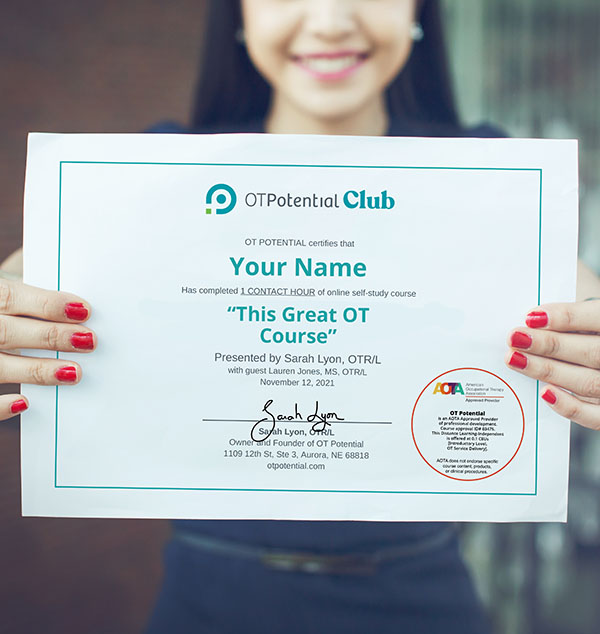
Earn 1 hour of continuing education
1. Listen to the podcast for free.
2. Sign up for the OT Potential Club.
3. Pass the quiz and download your certificate!
Primary Research Explored
In the OT Potential Club, you’ll find a written breakdown of the following research article—along with space to share your questions and thoughts with fellow practitioners.
Learning Objectives
- You will be able to identify core skills that foster self-management in patients following stroke.
- You will be able to summarize specific ways to meet the psychosocial and physical needs of patients, as viewed through the lens of self-management.
Agenda
Intro (5 minutes)
Breakdown of a meta-analysis of research on self-management in stroke (10 minutes)
- Self-management seems like a big topic—what does it actually include?
- What did the authors hope to contribute to the research on stroke and self-management?
- How was this research conducted?
- What types of reviews did they examine?
- What outcome measures/assessments did they find?
- What were the results?
- What did the authors conclude/discuss?
- Takeaways for OT practitioners
Discussion on practical implications for OTs (led by Lauren Sheehan, OTD, OTR/L) (45 minutes)
- Where are we currently, regarding self-management? How do you see principles of self-management already being incorporated into OT practice?
- In our current healthcare systems, what are the biggest barriers you see to more actively incorporating self-management principles?
- Where do you see self-management in stroke care going in the future?
- You walk into the room of a patient post-stroke: what is one thing you would do differently after reading this article?
- How are you thinking differently about the future of OT and stroke care after reading this article?
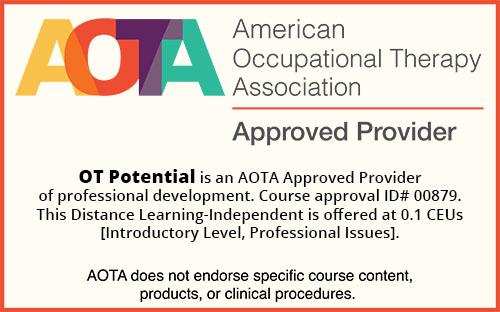
Instructional Methods/Registration/Special Needs Requests/Cancellation Policy
This course is an independent/self-study course delivered via podcast on iTunes, Spotify, Google Play & more.
If you need accommodations to take this course, please contact us and we will address your needs on an individual basis.
If we cancel a promoted course, event, live stream, or any other paid CEU offering prior to release, and you subscribe explicitly for said offering, you are eligible for a full refund if you did not complete and earn any other CEU quizzes or certificates during your subscription.
If a live webinar is cancelled that you signed up for, our system will automatically generate an email to you and if possible, we will inform you of the rescheduled date. Our most current webinar schedule will be found at: otpotential.com/live-ot-ceu-webinars.
Course Completion Requirements
In order to receive a certificate for this course, you must first participate in the podcast/webinar in its entirety. Then, you will need to take the quiz that will accompany the course and earn 75% or higher. If you pass, a certificate will be automatically generated and sent to your email. Quizzes for live (distance learning–interactive) webinars must be completed within 3 days of completing the webinar.
Target Audience/Educational Level
Occupational therapy practitioners who work with stroke patients, or are interested in self-management strategies. This educational level is introductory.
Financial and Non-financial Disclosures
It is the policy of OT Potential to disclose any financial and non-financial interest the provider or instructor may have in a product or service mentioned during an activity. This is to ensure that the audience is made aware of any bias of the speaker.
For this course neither speaker has any financial interest in the subject matter or assessments mentioned.
Speakers

Lauren Sheehan, OTD, OTR/L
Lauren has been an occupational therapist for 10+ years in a neuro-rehabilitation clinical setting, working with individuals with neurologic injuries and illnesses. She also spent a handful of years working in clinical administration and director of rehab roles for both small community hospitals and facilities in large, urban areas.
She has spent the last three years of her career working for rehabilitation technology companies, assisting with product and process development for products that serve stroke patients. She’s currently the Field Clinical Manager for NeuroLutions, a device company committed to developing quality products that incorporate innovation such as BCI (Brain Computer Interface) stroke rehabilitation technology.
She has a passion for supporting individuals with neurologic injury and illness through greater accessibility to technologies that can be used at home to increase function and improve quality of life. Outside of work, Lauren enjoys singing, cycling, and traveling.

Sarah Lyon, OTR/L
Sarah’s passion is helping fellow OT practitioners translate evidence into daily practice. Sarah earned her BA in religion from St. Olaf College, then earned her master’s degree in occupational therapy from New York University in 2011.
Since then, she’s worked in numerous facilities, including a critical access hospital, an acute trauma hospital, and a state inpatient psychiatric hospital. Sarah is the founder/owner of OT Potential. Read more about OT Potential here.
This course was designed to meet your continuing education requirements
We designed the courses in the Club to meet the requirements for “online” and “independent/self-study” courses. To verify the requirements from your specific state (within the US), check out our post, OT Continuing Education Requirements. If you are outside of the United States and have questions, please contact us.
We are proud to be an AOTA Approved Provider and to meet the requirements for your NBCOT renewal.
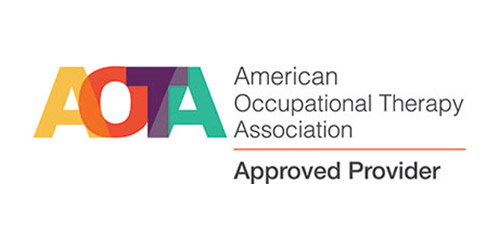
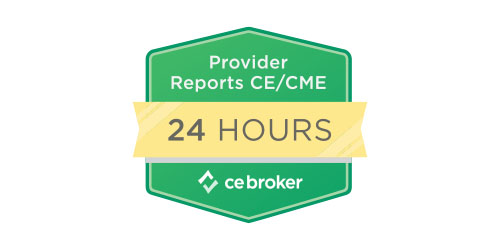
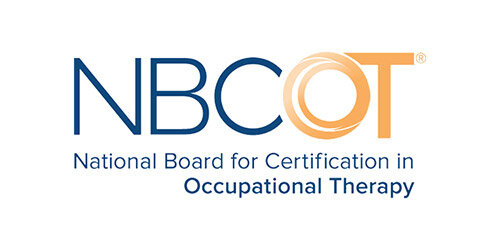
See our other OT courses!
Self-management for Stroke with Lauren Sheehan • OT Potential

This hour long occupational therapy continuing education course is aimed to help you refine your evidence based OT practice. We’ll be covering “Self-management for Stroke.” We’ll look at new research related to the topic and discuss it with Lauren Sheehan, OTD, OTR/L.
Course Provider: Organization
Course Provider Name: OT Potential
Course Provider URL: https://otpotential.com/
Course Mode: Online
Start Date: 2020-08-29
Duration: 01:00:00
Course Type: Subscription
4.87

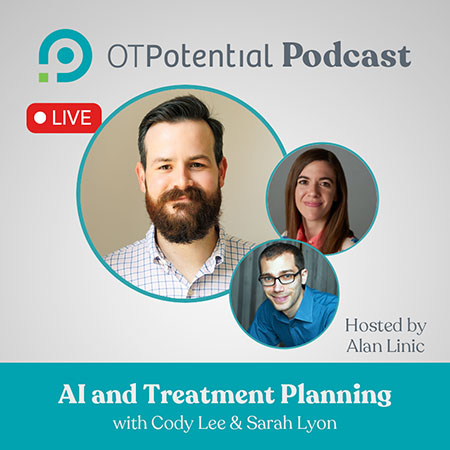
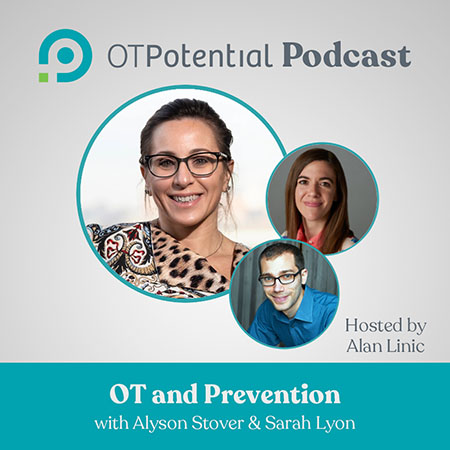
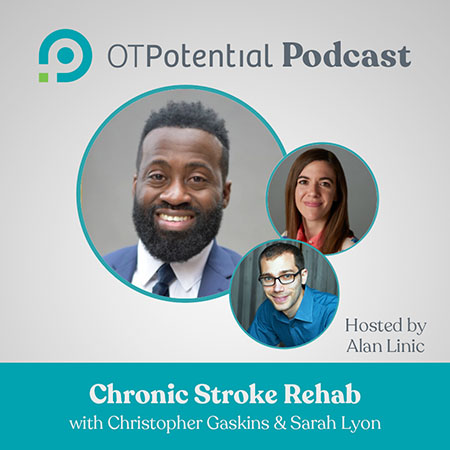
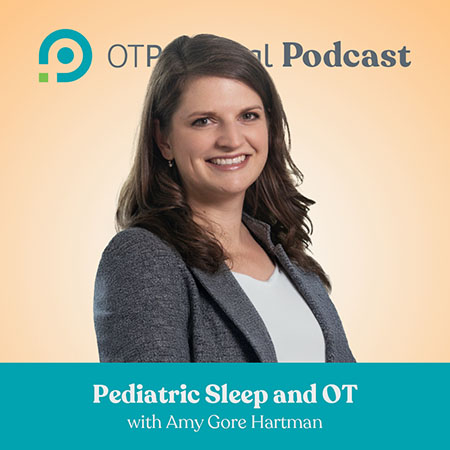
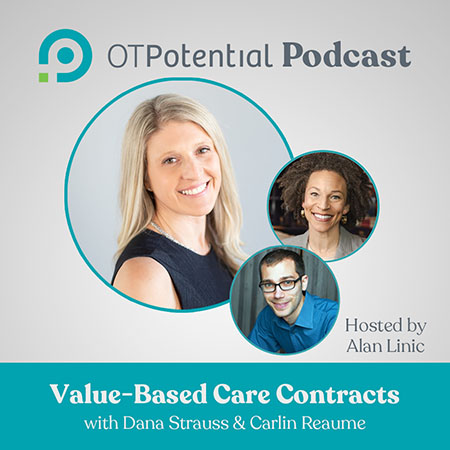
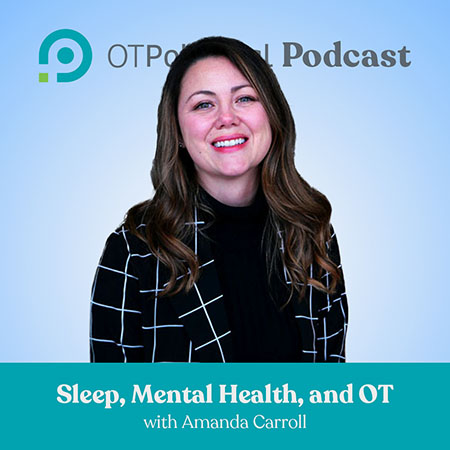
One reply on “Self-management for Stroke”
Beautiful episode!